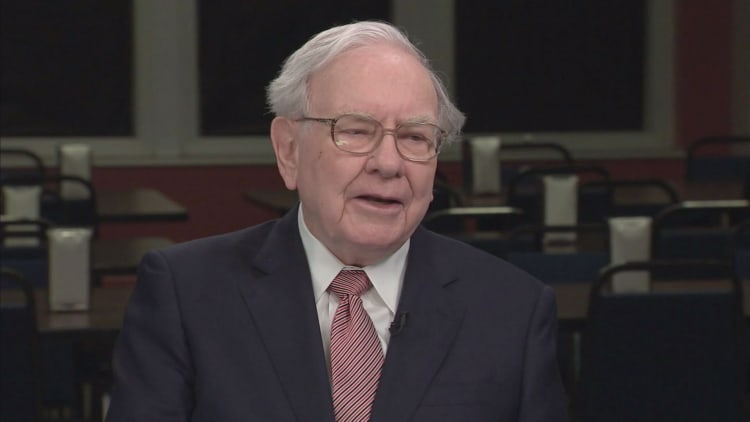U.S. companies are paying up to buy foreign firms, and prices will likely only go up.
"We expect higher prices to continue in M&A transactions … especially in the U.S.," said Dylan Cox, analyst at dealmaking data compiler PitchBook.
"You have too much capital chasing too few deals," he said.
The four largest announced U.S. acquisitions of overseas companies all occurred within the last five months, according to Richard Peterson, senior analyst at S&P Global Market Intelligence. Topping the list are two announcements of more than $40 billion each: Qualcomm's agreement to buy NXP Semiconductors and Praxair's plan to acquire Linde.
"The general theme of these deals is you're looking for new markets, you're looking for new product lines to sell [to] customers," Peterson said.
Record level of investment capital
From low interest rates to high levels of investment cash on hand, a variety of factors are coming together to drive up deal values. The Federal Reserve in December raised rates for just the second time in nearly a decade. Investors expect the pace of tightening to remain gradual.
Meanwhile, the total amount of capital available for investment — dry powder — jumped 27 percent in 2016 to an all-time high of about $1.6 trillion, according to a February report from McKinsey citing data from Preqin. Private equity accounted for more than half of that total, the report said.
"Private equity firms are awash in money. That money needs to be put to work," said Al Martinez, chief investment officer at HighTower Boca Raton, a financial advisory firm.
Already in the first two months of this year, private equity firms such as Blackstone and KKR have been involved in six of the top 10 announced U.S. deals to buy foreign firms, S&P data showed.
Another factor driving the U.S. companies' foreign acquisitions is the strong dollar, some analysts said.
"I think what's happening is clearly you have a strong U.S. dollar. I think there's more clarity, confidence of CEOs in the new administration," Martinez said.
The U.S. dollar index has leaped to its highest in 14 years and the euro trades near its weakest against the dollar since then as well. Pound sterling hovers near three-decade lows versus the dollar.
That said, the number of factors supporting more mergers and acquisitions doesn't mean it's smooth sailing from here.
"A strong dollar could make companies in Europe, companies in Canada and other markets comparatively cheaper for U.S.-based investors. But it's hard to say. There's so much logistically that has to happen," Pitchbook's Cox said, noting political risks.
"We've seen sort of a lack of quality companies coming to market," Cox said. He added that high prices could make it difficult to close deals.
Four of the top seven canceled deals occurred in the last two years, S&P's Peterson said.
That included the nixing of a proposed $143 billion merger between Kraft Heinz and Unilever on Sunday, just two days after Kraft Heinz floated the deal. The tie-up would have been the largest U.S. purchase of a foreign firm.



